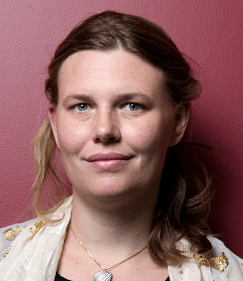
Associate Professor of Anthropology
Social Science and Environmental Health Research Institute
Northeastern University
s.wylie@northeastern.edu
Fellowship Projects: Open Water Data-Community Visualization of Clean Water Act Violations Project / Citizen Science Research / Developing, Validating, and Distributing a Low Cost Tool for Community Mapping of Hydrogen Sulfide with Photographic Paper Study
Fellowship Collaborations: Debts & Reciprocity vs. Deficits & Harms: Developing EJ Communication Tools to Catalyze Action / Exploring the Use of a Low-Cost Photopaper Tool for Citizen Science Detection of Urban Gas Leaks
“I believe we need system-wide research at a grassroots level that can only be achieved by collaborative, mutually beneficial work whose ultimate goal is not publications, but prevention or remediation of environmental health problems.”
Sara seeks to develop new modes of studying and intervening in large-scale social and environmental health issues such endocrine disrupting chemicals and Shale Gas extraction through a fusion of social scientific, scientific and art/design practices. Sara is a cofounder of Public Laboratory for Open Technology and Science, a non-profit that develops open source, Do It Yourself tools for community based environmental analysis. As Public Lab’s Director of Toxics and Health research Sara organized open source research projects on low cost thermal imaging, detection of indoor air hazards, and community based methods for detection of the neurotoxic gas hydrogen sulfide. Combining art, social theory of science and environmental science Sara is developing platforms and tools for citizen science that make environmental health research more collective and performative.
As an Associate Professor in Northeastern University with joint appointments Sociology/Anthropology and Health Sciences, Sara is building a collaborative environmental health research center: the Social Science Environmental Health Research Institute (SSEHRI). Previously, Sara taught Science and Technology Studies (STS) and BioArt in Rhode Island School of Design Digital+Media Department.
Wylie received her Ph.D. from MIT’s History, Anthropology, Science, Technology and Society (HASTS) Program in 2011. Her dissertation “Corporate Bodies and Chemical Bonds: An STS Analysis of the American Natural Gas Industry” is an ethnographic study of the role science based NGOs played in the emergence of public concerns about the human and environmental health impacts of chemicals used in natural gas extraction, particularly hydraulic fracturing. Wylie worked extensively with Theo Colborn, lead author of “Our Stolen Future” developing the first database of chemicals used in Fracking and their health effects. Investigating new methods for practicing STS research, her dissertation developed web-based tools to help communities and experts across the country study and hold extractive industries accountable for their social and environmental impacts. This project (called ExtrAct) was developed in collaboration with artist and technologist Chris Csikszentmihalyi, in MIT’s Center for Civic Media. Wylie has a forthcoming book with Duke University Press about scientific and social scientific responses to the Shale Gas boom.
This information is accurate as of the fellowship year indicated for each fellow.